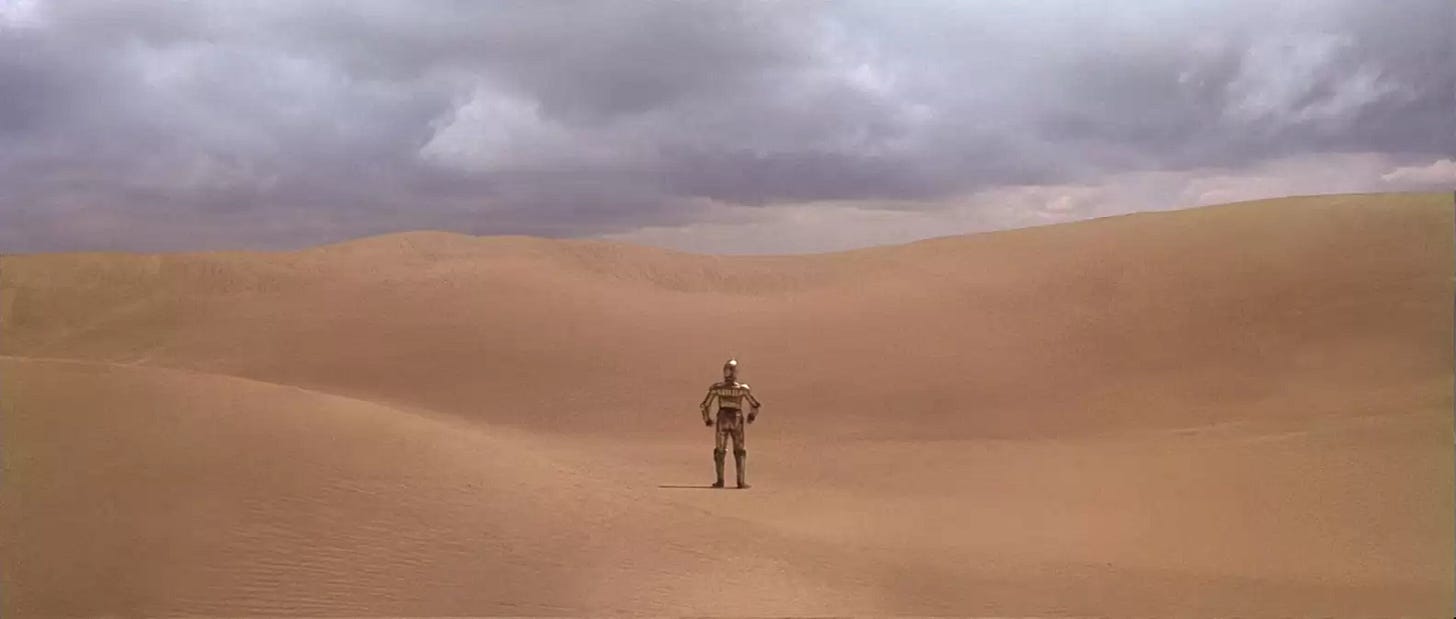For poets, your drag name is your real name.
I’d argue this is true for all poets, but with a name like Percy Bysshe Shelley it’s acutely obvious. (My drag name is Acutely Obvious.)
101 years before “The Second Coming,” Yeats’ vision of catastrophe blooming in the far desert, Shelley published “Ozymandias”—another blockbuster, as poems go.
The poem is not only a staple of high school curricula but a genuine friend to teachers; you’d be hard pressed to find a more efficient illustration of the concept of irony. In his sonnet, Shelley relates the tale of a “traveler from an antique land”: an encounter in the Egyptian desert with the ruins of a monumental statue.
All that remains of the statue is Ozymandias’ half-buried face—and the stumps of his enormous legs. If Shelley’s traveler had been a pinstriped Prohibition-era lowlife, he might have asked the statue if “Those legs go all the way up,” finally reifying the question’s grotesque counterfactual and, several butterfly effects later, creating a timeline in which Andrew Tate’s parents never met.
Empty desert surrounds the statue’s fragments. The traveler glimpses an inscription on the broken stones: “My name is Ozymandias, King of Kings, / Look on my works, ye mighty, and despair.” What works, chief? King of Bupkis is more like it. And the irony rings to the horizon.
My name is Ozymandias—but please, call me Mandy
Shelley was an arch-Romantic. In school I learned that Romanticism favored feelings over facts and country over city. What I didn’t realize was that the English Romantics, like Shelley, were preceded by the German Romantics—who enjoyed their share of countryside, but whose number included even bigger fans of countries, in the sense of nation-states.1
What’s difficult for me to remember is that nationalism, in some of its earlier incarnations, was a righteously progressive concept. Why should the spawn of monarchs rule over us?—we the people born in approximate geographic proximity? Let’s put it to a vote.
—Okay so half of us were massacred for trying to vote. New plan—storm the Bastille, then vote? Then brunch.
In this way, democracy and nationalism are conjoined twins of a sort; their potential separation has been a political fault line ever since.
Ozymandias was a real king, better known today as pharaoh Ramses II. The bonus irony of the sonnet is that pharaonic Egypt was so stupendously powerful and enduring as to almost topple the poem’s moral. In a clever bit of misdirection, Shelley chose far-flung statue fragments as his subject; it would’ve been a rather steep climb to write his poem about the Great Pyramid of Giza, literally the best-preserved physical legacy of the ancient world—and a monument, fantastically intact, to the fearsome leverage of a monarchy in its prime.2
Cut to the feeling
Can we imagine that Yeats’ rough beast is Ozymandias? Yeats described it as having a lion’s body and a man’s head—exactly like Giza’s Great Sphinx.
Awoken at last from “twenty centuries of stony sleep,” now he slouches toward Bethlehem, pissed as hell. Earth’s mighty haven’t been looking on his works? We’ll see about that, says Mandy, sharpening his claws.
SEE YOU NEXT FRIDAY SLASH SOONISH, DEAR FRIENDS.
If you have a cold, “naturalism” and “nationalism” sound like the same word. And what is that cold, that sickness? Capitalism. Just kidding. (Also, “naturalism” means something much closer to “realism” than “nature-ism,” but you get the idea, the idea being, Help)
For nearly 4,000 years after its construction, the Great Pyramid remained the tallest building on the planet—a record of dominance to which the Empire State Building’s is a toy in comparison.



